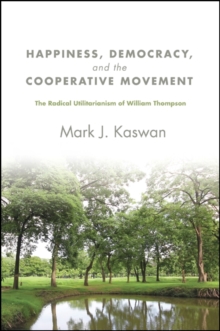
Toward a Critical Theory of States : The Poulantzas-Miliband Debate after Globalization EPUB
by Clyde W. Barrow
Part of the SUNY series in New Political Science series
EPUB
Description
We have recently lived through the turmoil of a global financial crisis that originated in the United States and, despite the platitudes of neo-liberal ideology, nation-states were deeply involved in managing this crisis. If "the state" is again a preeminent actor in the global economy, then state theory and the problem of the state should also return to the forefront of political theory. Toward a Critical Theory of States is an intensive analysis of the 1970s debate between state theorists Ralph Miliband and Nicos Poulantzas, including its wider impact on Marxist theories of the state in subsequent decades. Clyde W. Barrow makes unique arguments and contributions to this continuing discussion in state theory and lays the foundation for more theoretically informed empirical and historical research on the state in the age of globalization. He argues that by merely moving past the Poulantzas-Miliband debate, as some have recommended, scholars have abandoned much that is valuable in understanding the state, particularly the need to comprehend the contemporary transformation of the state form and the state apparatuses as part of the new conditions of globalization and transnational capital accumulation. Building upon themes of state restructuring found in Poulantzas and Miliband, Barrow establishes the outlines of an approach that integrates the thought of both to propose a synthetic understanding of the new imperialism.
Information
-
Download - Immediately Available
- Format:EPUB
- Pages:250 pages
- Publisher:State University of New York Press
- Publication Date:12/05/2016
- Category:
- ISBN:9781438461816
Information
-
Download - Immediately Available
- Format:EPUB
- Pages:250 pages
- Publisher:State University of New York Press
- Publication Date:12/05/2016
- Category:
- ISBN:9781438461816










